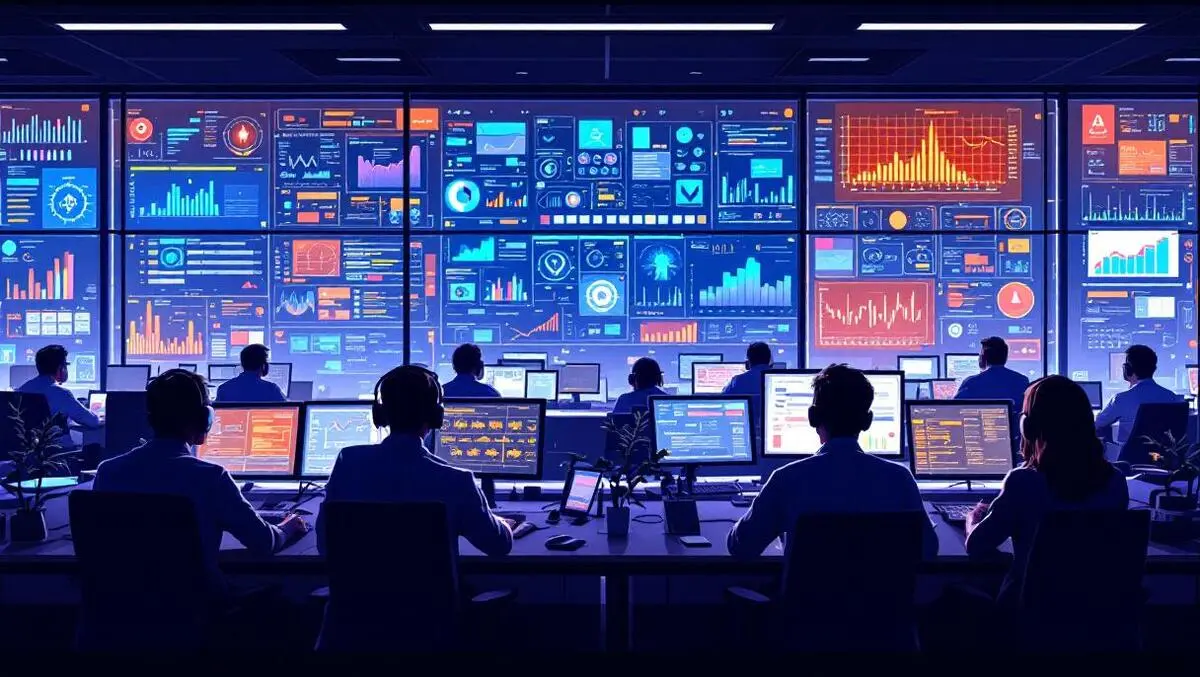
AI becomes essential to the future of security operations centre
Abnormal AI has published a research report indicating a unified perspective among cybersecurity professionals that artificial intelligence is set to play a foundational role in the security operations centre.
The report, titled "Human-Centreed AI: Redefining the Modern SOC", is based on feedback from approximately 500 security leaders and SOC analysts based in the United States and United Kingdom. The survey results reveal that both leadership and frontline staff hold a rare consensus: adoption of AI in security operations is viewed as essential rather than optional.
AI adoption priorities
All respondents to the survey indicated that implementing AI within the SOC is currently their foremost business objective. There is widespread optimism in the sector regarding the potential of AI not only to automate repetitive tasks but also to enable analysts to focus on work of higher value, such as threat hunting and strategic security initiatives.
Among those surveyed, 96% of leaders stated that there are no plans to reduce headcount as a result of increased AI adoption. Instead, teams are being reorganised to allow personnel to pursue more advanced and proactive elements of security management, including analyst mentorship and investigation of security threats.
Seventy-five percent of frontline analysts reported that AI tools are already reducing alert fatigue and automating routine processes, which has translated into improved job satisfaction. Sixty-three percent of analysts indicated that AI technologies are enhancing the accuracy of their investigations, and this figure rises to 69% among those who use AI daily.
Perspectives from industry leaders
"The findings show that the old narrative of AI replacing security professionals is falling away," said Mick Leach, Field CISO at Abnormal AI. "Today's leaders and analysts universally see AI as a force multiplier that empowers teams to do their best work - more accurately, more efficiently, and with greater satisfaction."
The research highlights a shift in industry perceptions, suggesting that the integration of AI in security operations is less about reducing costs and more about driving operational change and skill development within security teams.
Daily users of AI systems expressed greater confidence in both their roles and the effectiveness of the SOC as a whole. The study's findings suggest that as AI matures, both leaders and analysts anticipate a near-term future where autonomous SOC operations become standard practice, evolving beyond basic automation to intelligent, collaborative functionality.
The role of human expertise
A key theme emerging from the report is the reallocation of human talent: as AI assumes responsibility for repetitive tasks, human analysts can dedicate more time to activities that leverage their expertise, such as comprehensive threat investigation and strategic planning.
"This is the first time we've seen such universal alignment between CISOs and frontline analysts about where AI fits," continued Leach. "The consensus is clear: human-centered AI isn't just inevitable - it's foundational to the future of security. Getting there requires redefining the roles of human analysts alongside AI and shifting resources toward proactive, risk-based operations. Those that succeed will be the ones who embrace AI not just as a tool, but as a strategic partner in both technology and talent evolution."
The report emphasises the growing acceptance among security professionals that AI will be a long-term, integral part of SOC operations. As a result, organisations are investing in upskilling team members and adapting processes to support a collaborative environment between personnel and AI-driven technologies.
Socio-technical implications
Survey data suggest that benefits of AI integration are already visible in existing processes, with most respondents optimistic about further improvements as AI technologies continue to develop. Operational efficiencies, enhanced accuracy in threat detection, and the redistribution of work are noted as primary outcomes, but improved morale and job satisfaction are also highlighted.
Both security leaders and analysts expect that the next three to five years will see a transition toward more autonomous and collaborative SOCs, driven by advancements in AI and a focus on integrating technology with human skills.


